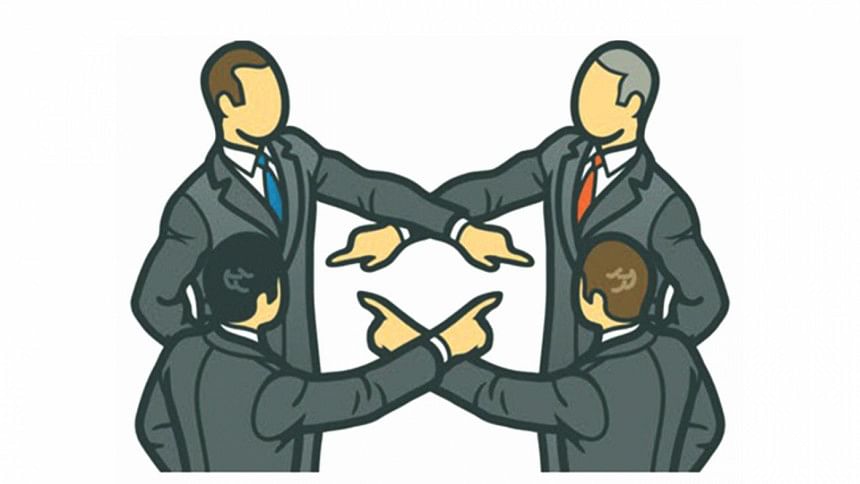Ensuring accountability for fair law enforcement

Of late there is visible indignation over some law enforcers' indefensible flouting of law. In specific terms, this refers to the failure of police to arrest an under-aged driver who had rammed the SUV he was driving into two rickshaws, grievously injuring four people. No police action followed, despite grievous injuries caused by drunk driving. To cap it all, the driver did not even have a learner's license.
The inaction of police resulted in the filing of a Public Interest Litigation in the High Court, which asked the authorities to explain in two weeks why they should not be ordered to take legal actions against the under-aged driver. The ruling came as law enforcers did not take any action even eight days after the incident. The delinquent driver is reportedly the nephew of a former lawmaker and son of an influential businessman, thus leading to the stalling of legal actions.
The above incident quite justifiably gives rise to the premonition that powers conferred on the police are usually misused against the poor and the defenseless, thereby far from generating respect for the administration. They further undermine confidence in the governmental machinery and respect for law. The impression is that police will side with the guilty and oppress the weak and the innocent, or that the police will side with the affluent and ignore the poor. This is inevitable as police work is under close review by a demanding and critical public.
It is, therefore, desirable that the public must not get an impression that the investigation agencies are very efficient while taking the required action against those not in power, and that against those in power, their edge is blunted. One needs to know that as long as the impression persists that a policeman is not a friend of people, the concept of an orderly society cannot be achieved. The question is, how we do that and what corrective and remedial actions are required to ensure a reasonably fair, impartial and accountable law enforcement.
Criminal justice could be a barometer of civilisation in a society, an indicator of the operational patterns of a 'due process model'. In that, it is the individual for whose protection the whole system, including legislative, executive, and adjudicative, operates. The criminal justice system is intricately related to these systems. The police are a limb of the executive system and the most significant sub-system of the criminal justice system.
In the present scenario, where the police have not been able to desirably transform it and the political class of the country is not sufficiently sensitised towards the need to revamp the police, people may have to rely largely on a proactive judiciary to keep police on the democratic track.
In practical terms, the apex court may, amongst others, take actions to ensure that no arrest is made merely because it is lawful for the police officer to make an arrest. It needs to be impressed that the existence of power to arrest is one thing, and justification of it is quite another. In other words, the police officer must be able to justify the arrest apart from his power to do so. Denying a person his liberty should be a serious matter.
Of particular importance should be the complaint of torture in custody that flouts the basic rights of citizens recognised by our Constitution and is an affront to human dignity.
While police officers are, and should continue to be, held personally responsible for their actions, considerable responsibility rests with the police department and the government to ensure that sound, effective system exists for misconduct by individual officers to be reported, investigated, and dealt with fairly. The responsibility is joint, in that the establishment of any internal investigation is a matter for the police department, while any legislation regarding external supervision of such a process is a matter for the politicians and the Parliament to focus on.
In the long term, police officers will have to become accustomed to the professional standards of a modern police service, and have to meet these requirements as a matter of course. In the short term, higher standards have to be inculcated by training or other positive methods to ensure that there is a general agreement in the standard of quality required, and a widespread, genuine attempt to reach it. Without these, a quality control system will not succeed.
All too often, the only way that the standards required by the police organisation become known is through stringent internal investigations which result in a report which criticises common working practices. This is a reactive approach which only indicates failure and frequently leads to a lowering of morale within a police service, unless accompanied by positive means of achieving higher standards.
The writer is a columnist of The Daily Star.

 For all latest news, follow The Daily Star's Google News channel.
For all latest news, follow The Daily Star's Google News channel. 



Comments